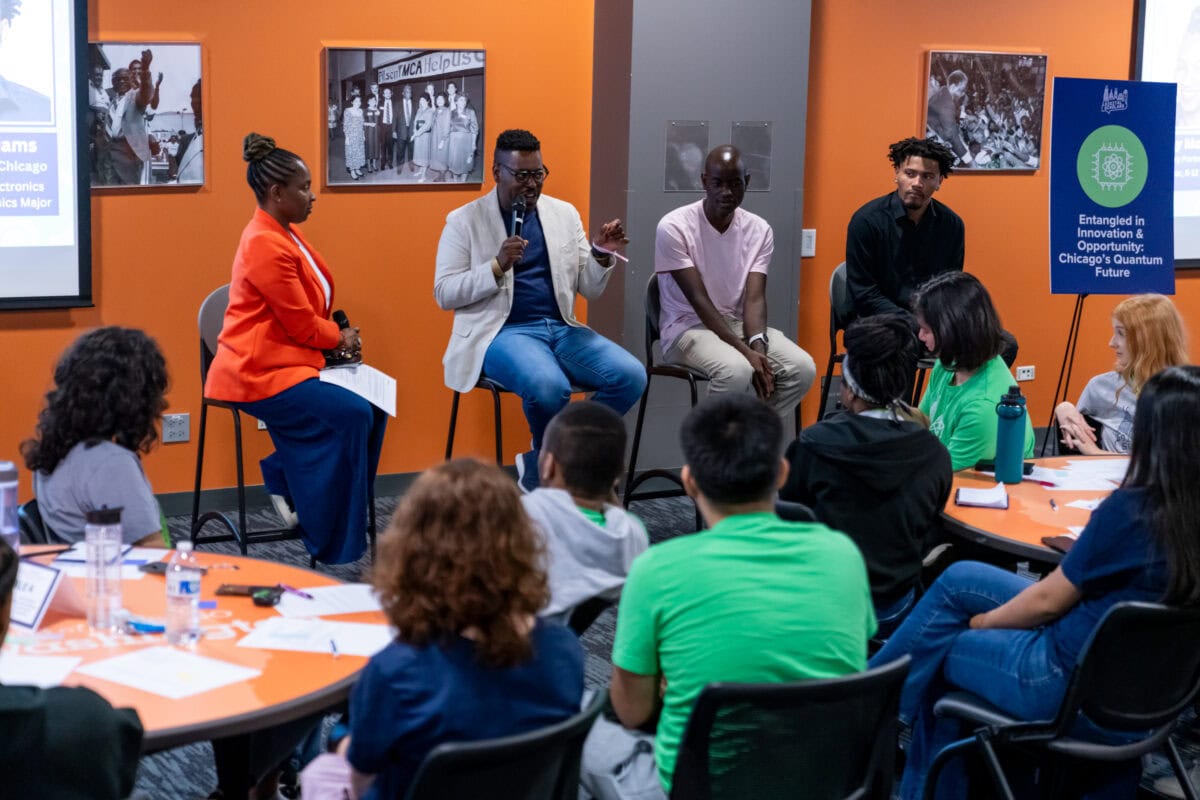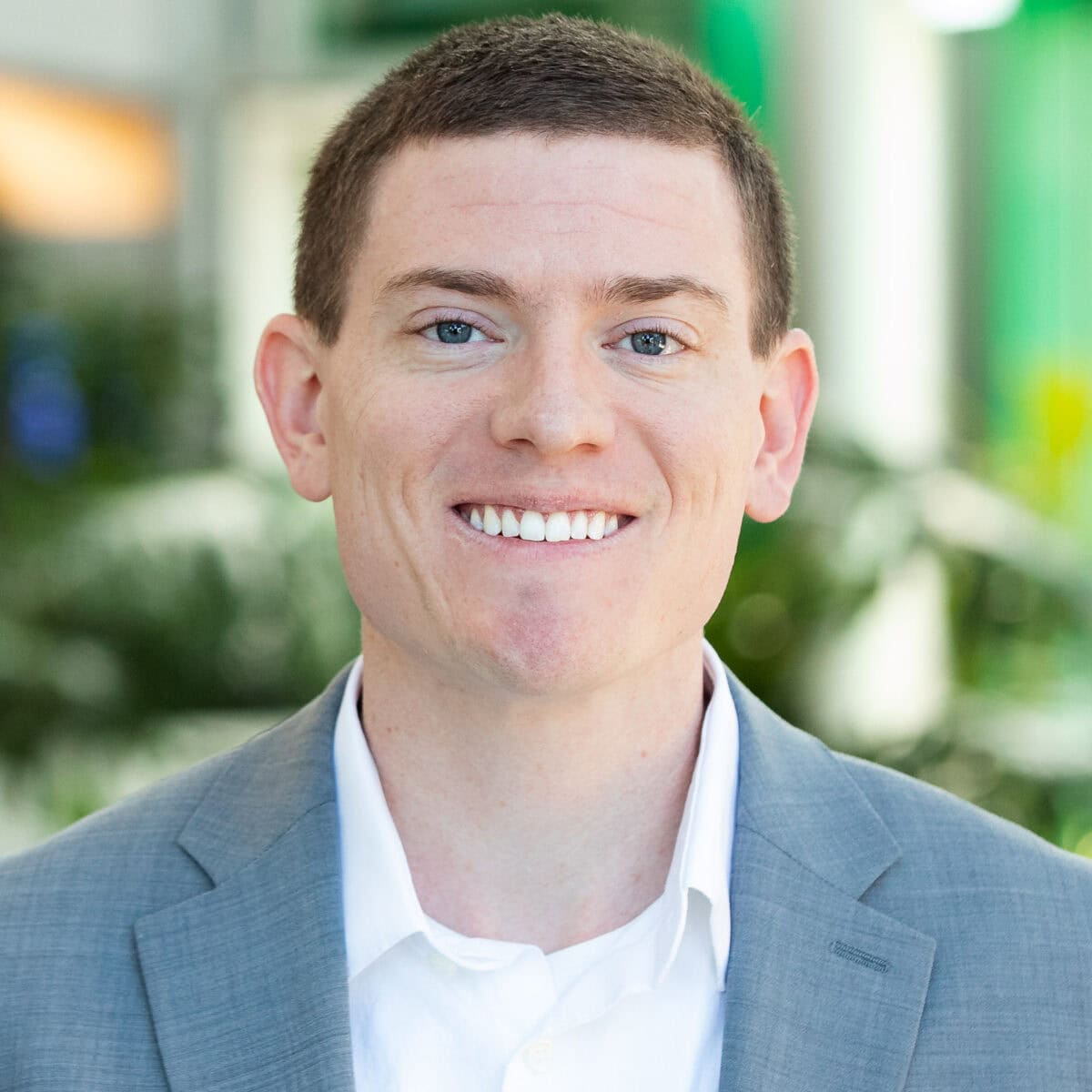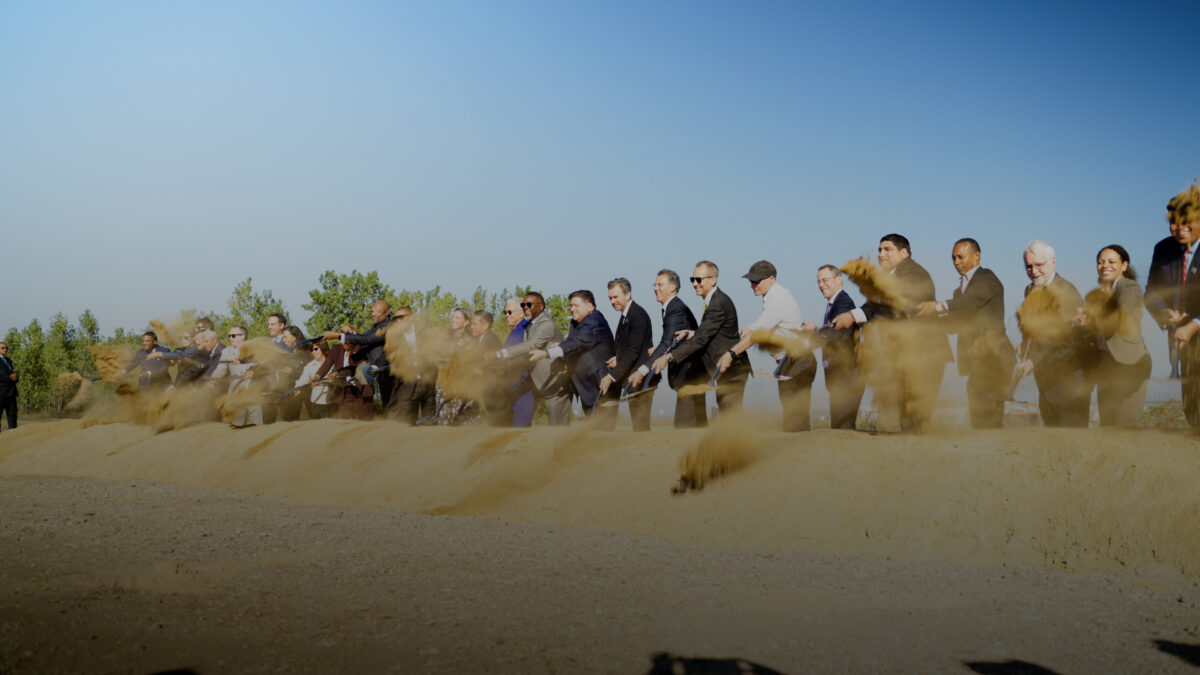
Image Credit: Discovery Partners Institute
The Discovery Partners Institute’s “Entangled in Innovation & Opportunity: Chicago’s Quantum Future” event started with a question:
“What’s the difference between a quantum computer and a classical computer?”
A hand went up among the 150 high school and first-year college students currently enrolled in DPI’s Digital Scholars Program, which helps participants build computing skills, increase college and career-readiness and make connections to Chicago’s dynamic tech community.
“A quantum computer is a lot smaller,” a student offered. Another chimed in, “It might be bigger or smaller, but you won’t search Google on it. You know what I mean?”
That day, the students learned that the biggest distinction between a quantum and a classical computer boils down to the manner and speed at which it is able to solve problems. Getting next gen learners hooked on quantum — not the correct answers — was DPI’s objective. Digital Scholars was launched in 2020 to build a deeper, more diverse pool of students pursuing computer science and tech-related degrees, but this is the first year quantum was among the program topics. As the IQMP elevates Chicago as a global hub for quantum technology, its tenants and partners are leaning into creating a talent pipeline of all skill levels to feed into employers at the Park.
“The students that participate in this program are selected because they don’t have experience,” said Kay Monelle, DPI’s director of K-12 programs. “Our goal is to give students an experience that they wouldn’t normally have. So there are no grades. They’re allowed to fail. It is literally about having the experience, and there are so few spaces like that right now for students.”
Every day, students learn about their area of interest in computer and data science, mobile app development and computer engineering. Then, on Fridays, they are guided through experiential and immersive learning experiences that allow them to think about what’s happening in these tech spaces, said Mark Harris, director of DPI’s Pritzker Tech Talent Labs, part of the University of Illinois system.
“You really need to plant these seeds early with learners who are in classrooms today to get them thinking about which big problems they want to solve, and really how quantum is going to elevate our ability to solve problems and challenges in every sector of our economy,” Harris said.
At the July forum, speakers representing PsiQuantum, IBM, the University of Illinois and Argonne National Laboratories shared their personal journeys into tech and the wide range of jobs in quantum, dispelling myths about qualifications.
“You don’t have to write the code yourself,” said Ruchi Pendse, quantum engagements lead, Illinois Partnerships, for IBM. “You can still find a career where you’ll be impacted by the sheer power of quantum computation.”
Pendse shared some basic quantum knowledge with students, emphasizing the quantum calculations’ superiority over classical computers to solve complex problems. “A big reason why quantum computers can do this faster is because they scale differently,” she said.
As someone who never pictured himself in the quantum space until recently, Mo Green, head of market development and community affairs for PsiQuantum, the IQMP’s anchor tenant, told participants he expects to see more people like him without any technical training entering the quantum field.
“Whether you’re a plant technician, working in logistics/supply chain, or on the business side, there will be a lot of people that can’t necessarily unpack the intricacies of quantum, but the work that we do will still be integral to the industry,” he said.
A recent report from the Chicago Quantum Exchange (CQE) found that about two-thirds of jobs in the quantum industry are open to those with a bachelor’s degree or less.
Victory Omole, a quantum software engineer for Infleqtion, the IQMP’s newest tenant, chimed in: “In 10 years, the industry will continue to grow and grow and become more inclusive as it does.”
Students also took part in a quantum cryptography activity facilitated by the Argonne team that demonstrated how quantum keys can enhance the security of transmitting messages. Caleb Williams, an undergraduate at the University of Illinois Chicago majoring in electrical engineering, complimented the students for seeking knowledge outside of traditional classrooms. “School can’t teach you everything. That’s why you have to take your learning into your own hands, and that’s how you’ll find your passion,” he said.
By the end of the day, Maya Cadichon, an incoming freshman at the University of Illinois in Urbana-Champaign, said she was becoming hooked on quantum and extolled the value of Digital Scholars for young people, like herself, who grew up in communities lacking resources and access.
“It’s so important because it gives you accessibility and a reason to show up in the world,” she said. “They gave us a lot of advice on their career pathways, which was more than what you would traditionally think a computer scientist would do in a tech field. The future of quantum technology is innovative and transformative.”
Publish Date
July 31, 2025
Sign Up for Our Newsletter!



